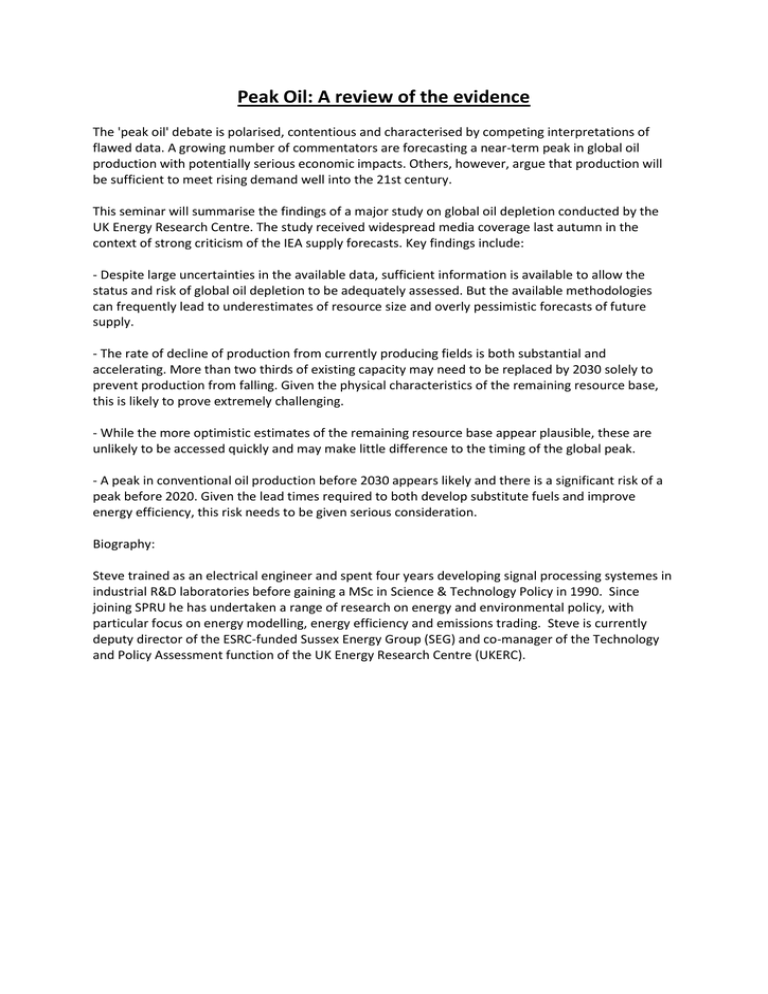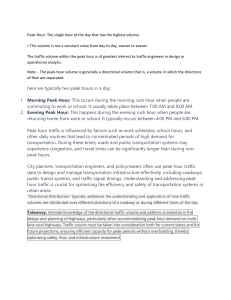steve sorrel abstract and bio
advertisement

Peak Oil: A review of the evidence The 'peak oil' debate is polarised, contentious and characterised by competing interpretations of flawed data. A growing number of commentators are forecasting a near-term peak in global oil production with potentially serious economic impacts. Others, however, argue that production will be sufficient to meet rising demand well into the 21st century. This seminar will summarise the findings of a major study on global oil depletion conducted by the UK Energy Research Centre. The study received widespread media coverage last autumn in the context of strong criticism of the IEA supply forecasts. Key findings include: - Despite large uncertainties in the available data, sufficient information is available to allow the status and risk of global oil depletion to be adequately assessed. But the available methodologies can frequently lead to underestimates of resource size and overly pessimistic forecasts of future supply. - The rate of decline of production from currently producing fields is both substantial and accelerating. More than two thirds of existing capacity may need to be replaced by 2030 solely to prevent production from falling. Given the physical characteristics of the remaining resource base, this is likely to prove extremely challenging. - While the more optimistic estimates of the remaining resource base appear plausible, these are unlikely to be accessed quickly and may make little difference to the timing of the global peak. - A peak in conventional oil production before 2030 appears likely and there is a significant risk of a peak before 2020. Given the lead times required to both develop substitute fuels and improve energy efficiency, this risk needs to be given serious consideration. Biography: Steve trained as an electrical engineer and spent four years developing signal processing systemes in industrial R&D laboratories before gaining a MSc in Science & Technology Policy in 1990. Since joining SPRU he has undertaken a range of research on energy and environmental policy, with particular focus on energy modelling, energy efficiency and emissions trading. Steve is currently deputy director of the ESRC-funded Sussex Energy Group (SEG) and co-manager of the Technology and Policy Assessment function of the UK Energy Research Centre (UKERC).











